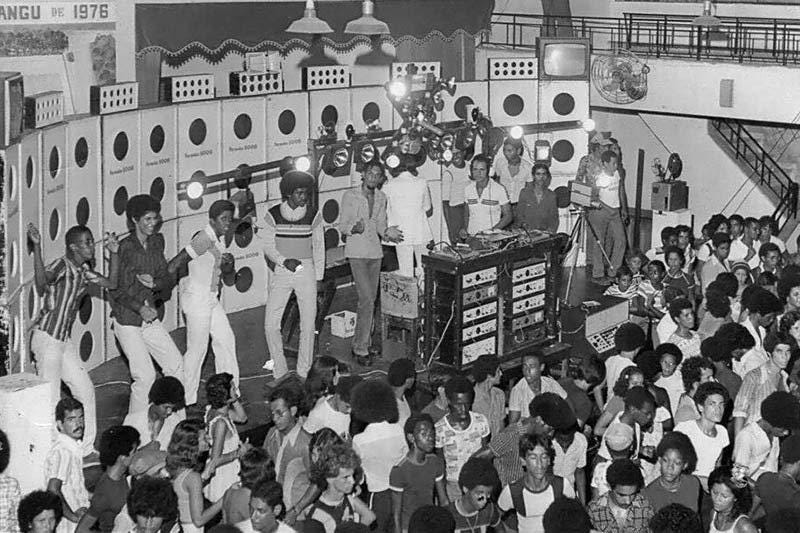Genre of the Day - Samba-Rock
Album of the Day - A Tábua De Esmeralda by Jorge Ben Jor (1974)
Samba-rock extends our unexpected three-day journey through South America, but we’ve finally crossed the border north from Argentina back into Brazil after a considerable drought. Today’s genre quenches our thirst with a fusion that reflects Brazi’s particular strains of the tectonic, visionary cultural shifts in global folk musical artistry in the ‘60s and ‘70s. After samba and bossa nova helped put Brazil and Afro-Brazilian culture on the global musical map, samba-rock pulled these international heaps of energy homewards by infusing Brazilian sounds with American rock, funk, and soul.
By the late 1950s, the American record industry’s worldwide footprint was beginning to manifest in global interpretations of rock’n’roll that would explode in the ‘60s such as in Thailand’s wong shadow. Samba already had wide-ranging fusion potential; sambalanço had seen the heat of big band jazz burn a hole in the cooler jazz emerging in bossa nova. The raucous parties of the favelas acted as the conduit of this process in Brazil; international rock and soul records got equal spintime alongside local sounds. That context illustrates the natural fluidity of music’s construction in real-time; hearing those records side-by-side in celebratory joy, spearheaded by the DJs central to Brazilian party culture, allowed visionaries to explore and execute their melding in the studio.
The story of samba-rock walks hand-in-hand with tropicália, a movement initially conceptualized as a tongue-in-cheek criticism of reductive notions of the Brazilian tropical paradise. Tropicália flooded over the country in the ‘60s as a potent countercultural force dispelling the dark clouds hanging above the country amidst its grim descent into a right-wing military dictatorship. The politically left-wing and psychedelically left-of-center artistic movement sought radical revisions of Brazil’s culture. Artists envisioned a Brazil that was radically affirmed in its multiculturalism and valued Afro-Brazilians’ cultural integrality in an economy where wealth inequality consistently left them to the wayside. Samba-rock filled a similar but distinctly transnational space throughout the ‘60s and ‘70s. The additional weight of politically-charged, transformational Black American soul and rock added heft and international visions of liberation to Brazil’s cultural context. Musically, samba-rock unearthed new guitar strumming styles emerged like the tumxicutumxicutum, one of this column’s all-time word discoveries. Though samba-rock reached its stylistic peak and greatest output in the ‘70s, the 2000s saw a widespread revival of styles across Brazil like forró universitário and samba-rock reemerged in an electronic context.
Jorge Ben Jor was samba-rock’s greatest luminary—though seemingly like all great luminaries, he chafed at the term samba-rock—and 1974’s A Tabua De Esmeralda finds soul, música popular brasileira, rock, and samba growing and intertwining as organically as grass grows between sidewalk cracks. It’s conceptually ambitious, with aspirational, historical, and religious overtones hanging over its buoyant guitar melodies. One track is named for Zumbi (surprisingly not the originator of the word samba), the most folklorically significant king of a 1600s quilombola escaped slave community, representing the blaze of Afro-Brazilian pride. Opener “Os alquimistas estão chegando os alquimistas” draws one into his sonic sorcery via funk-inflected, sunny guitar voicings that open up to classic MPB strings, flutes, and expansive harmonies elucidating Portuguese’s beautiful vowel tonalities as he promises incoming alchemists. The alchemy is potent across the album—the chamber soul-echoing psychedelia of “Errare humanum est” contemplates astronauts as microcosms of humans’ celestial purpose. Other moments are more grounded on earth, or at least Rio’s slice of earth—“Minha Teimosia, Uma Arma pra te Conquistar” focuses on stubbornness and surrender in love, its cuíca-drum bounce and rich rhythmic guitar an irresistible miniature of samba-rock’s genre-spanning, innovative expressions.







Great stuff and another reminder that a deep dive into the Brazilian 70s will always yield GOLD.
This record is a longtime favorite and I’m so happy you wrote about it.